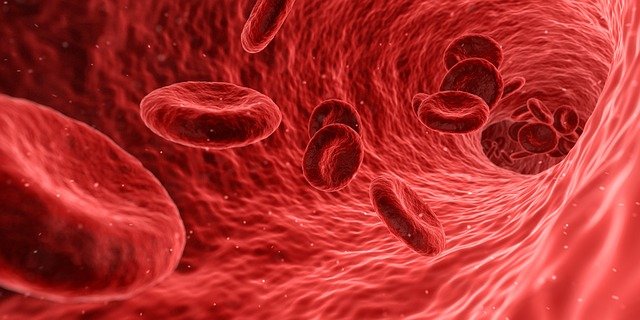Cardiovascular disease (CVD) — the leading cause of death across the globe —takes an estimated 17.9 million lives annually.
CVD, in brief
Though cardiovascular diseases encompass a wide range of heart and blood vessel disorders, 80% of deaths are due to heart attacks and strokes. Risk reduction is crucial. Hypercholesterolemia, hypertriglyceridemia, increased low-density lipoproteins (LDL), and reductions in the levels of high-density lipoproteins (HDL) — factors that heighten risk — often respond to medications such as statins.
More holistic, lifestyle approaches, including exercise and diet as well as functional foods enriched with bioactive components such as fish oils, fibers and phytosterols may also be beneficial in reducing risk. Dietitians and other health professionals can advise on these.
Probiotics are also showing promise. Let’s look at this area of current investigation with emphasis on cholesterol.
Impact of probiotics on cholesterol levels
Some of the first interest in this regard began when fermented milk and probiotic yogurts were observed to have cholesterol-lowering effects.
Later, studies showed that people with hypercholesterolemia have lower bacterial diversity and different gut microbiota composition compared with control subjects with normal cholesterol levels. What is cause and effect here is difficult to say. Researchers asked if manipulating gut microbes with probiotics may improve risk factors for cardiovascular disease such as blood cholesterol levels.
A 2019 systematic review assessed the effects of probiotic supplementation on the prevention and treatment of changes to the lipid profile. Fourteen clinical trials were included in the analysis. A useful summary includes details on 14 clinical trials published from 2013 to 2018. Conclusions were that supplementation with specific probiotic strains may significantly reduce total cholesterol, LDL-c, and in some cases even reduce triglycerides and increase HDL-c in hypercholesterolemic adults. Various strains of Lactobacillus (11 studies) and Bifidobacterium (6 studies.) were most frequently administered. Notably, about half of these studies used probiotic combinations of various species and strains.
Another recent systematic review and meta-analysis of seven studies with 274 participants suggests that probiotic yogurt can significantly reduce total cholesterol and LDL-c in subjects with mild to moderate hypercholesterolemia without a significant effect on HDL-c and triglyceride levels.
And yet another meta-analysis of 61 clinical trials and 5422 persons investigated the impact of probiotic and synbiotic interventions to reduce cardiovascular risk factors in otherwise healthy adults. It was found that probiotics can decrease the total cholesterol level in persons with increased BMI, but other lipid parameters were not affected by probiotics and synbiotics administration.
Two recent studies add to the cache:
An in vitro study found that a specific strain of Lactobacillus plantarum exerted cholesterol-lowering properties via phosphorylation of AMPK (plays a major role in regulating metabolism), resulting in the reduced expression of HMG-CoA reductase which is the rate-limiting enzyme for cholesterol synthesis .
In a small clinical study, twenty men with stable coronary artery disease were given a drink containing 20 billion CFUs of a strain of Lactobacillus plantarum for six weeks. In addition to improved vascular endothelial function and reduced inflammatory biomarkers, altered regulation of genes responsible for cholesterol transport and liver homeostasis including those controlling the production of HMGCR was observed.
Potential mechanisms for probiotic action
Probiotics may reduce cholesterol levels by several mechanisms:
- Deconjugation of bile salts: When bile acids are deconjugated, they pass unabsorbed through the small intestine, enter the colon and are excreted with the feces. More cholesterol is then shunted into the production of bile acids, thus lowering blood cholesterol levels. And deconjugated bile acids coprecipitate with dietary cholesterol, leading to lower absorption and increased excretion of cholesterol and cholesterol based components such as bile acids. Deconjugation is catalyzed by bile salt hydrolase (BSH). BSH activity has been detected in specific strains of lactobacilli and bifidobacteria, which are routinely used as probiotics. Precipitation in the acidic environment of the gut can also reduce plasma cholesterol level by slowing its absorption from food into the blood.
- Incorporation of cholesterol in the cell membrane of new microorganisms: This may divert cholesterol from the blood. However evidence is only derived from in vitro studies.
- Decrease in cholesterol synthesis in the liver: HMG-CoA reductase (HMGCR) is a vital enzyme in cholesterol synthesis. Lactobacillus strains have been shown to suppress HMGCR levels in vitro.
- Short chain fatty acid production: Specific probiotic organisms feed on prebiotic fibers, producing short chain fatty acids (SCFA) such as butyrate and propionate, both of which may inhibit liver cholesterol synthesis. Thus probiotics when paired with appropriate prebiotics may be beneficial.
Other possible mechanisms have been suggested for probiotic microorganisms including yeasts.
Takeaway
Probiotic supplementation may lower blood cholesterol levels. The evidence supports a case for identifying best strains and dosages to achieve a beneficial improvement.
Key references
Gadelha, Carlos Jorge Maciel Uchoa, and Alane Nogueira Bezerra. “Effects of probiotics on the lipid profile: systematic review.” Jornal vascular brasileiro vol. 18 e20180124. 9 Aug. 2019, doi:10.1590/1677-5449.180124
Olas, Beata. “Probiotics, Prebiotics and Synbiotics-A Promising Strategy in Prevention and Treatment of Cardiovascular Diseases?.” International journal of molecular sciences vol. 21,24 9737. 20 Dec. 2020, doi:10.3390/ijms21249737
Pandey, Kavita R et al. “Probiotics, prebiotics and synbiotics- a review.” Journal of food science and technology vol. 52,12 (2015): 7577-87. doi:10.1007/s13197-015-1921-1

